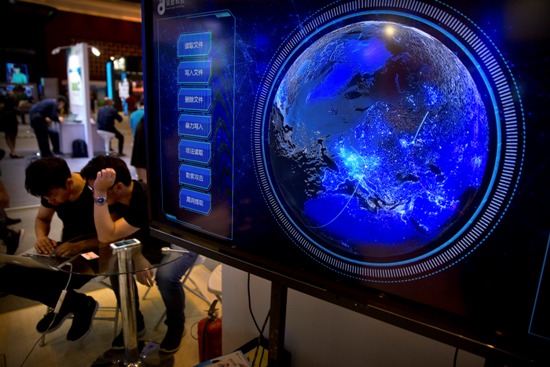Kansas to get $15 million for community digital devices and skills training

TOPEKA – Governor Laura Kelly says Kansas is the first state to receive $15 million in U.S. Department of Treasury Digital Connectivity Technology (DCT) funds.
The money will support equal access to high-speed internet, provide devices to underserved Kansans, and expand digital skills training for communities across Kansas.
“It’s not enough to expand high-speed internet across Kansas – we must also show Kansans of all ages and backgrounds how to make the internet a useful tool in their everyday lives,” Governor Laura Kelly said. “These funds will provide the devices and skills training to help every Kansan benefit from our investments to make high-speed internet available in their local communities.”
Governor Kelly was the first in the country to recognize the need to design a program that offers free computers and free public Wi-Fi to underserved Kansans with these funds.
DCT is made available under the American Rescue Act Capital Projects Fund (CPF). States have the option to put all CPF dollars toward broadband infrastructure or to set aside some of the funding for programs that ensure broadband is more fully accessible to hard-to-reach communities.
During Net Inclusion, the National Digital Inclusion Alliance’s annual conference, Joseph Wender, Director of the Capital Projects Fund, said that 20 additional states also had applied for funding.
“Kansas is just the first of many more to come, and it will be to the tune of hundreds of millions of dollars,” Wender said.
“By supporting underserved communities and focusing exclusively on equal access to digital technologies with these funds, we will continue to address the specific challenges our communities face,” Lieutenant Governor and Secretary of Commerce David Toland said. “This is critical as we work toward Governor Kelly’s goal of getting every Kansan who wants access connected by 2030.”
“We know infrastructure is not enough to bridge the digital divide in underserved areas,”Jade Piros de Carvalho, Director of the Kansas Office of Broadband, said. “Our office is excited to put these dollars to work to bring Kansans unique opportunities that provide needed equipment and skills training.”
The Office of Broadband has been conducting meetings across the state to solicit feedback for a five-year broadband access and digital equity strategic plan.
These listening sessions have also highlighted the need for laptops/computers, public wi-fi, and digital training programs.



